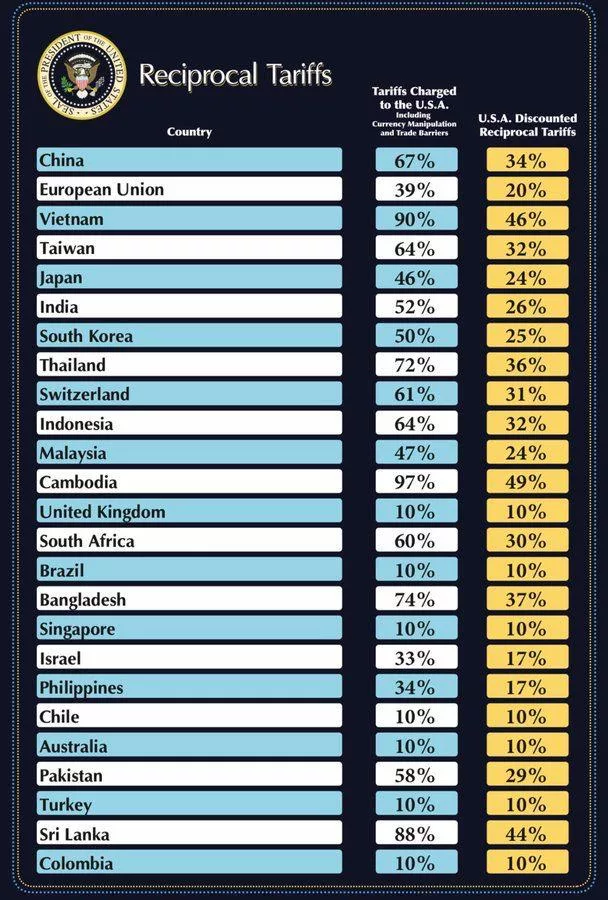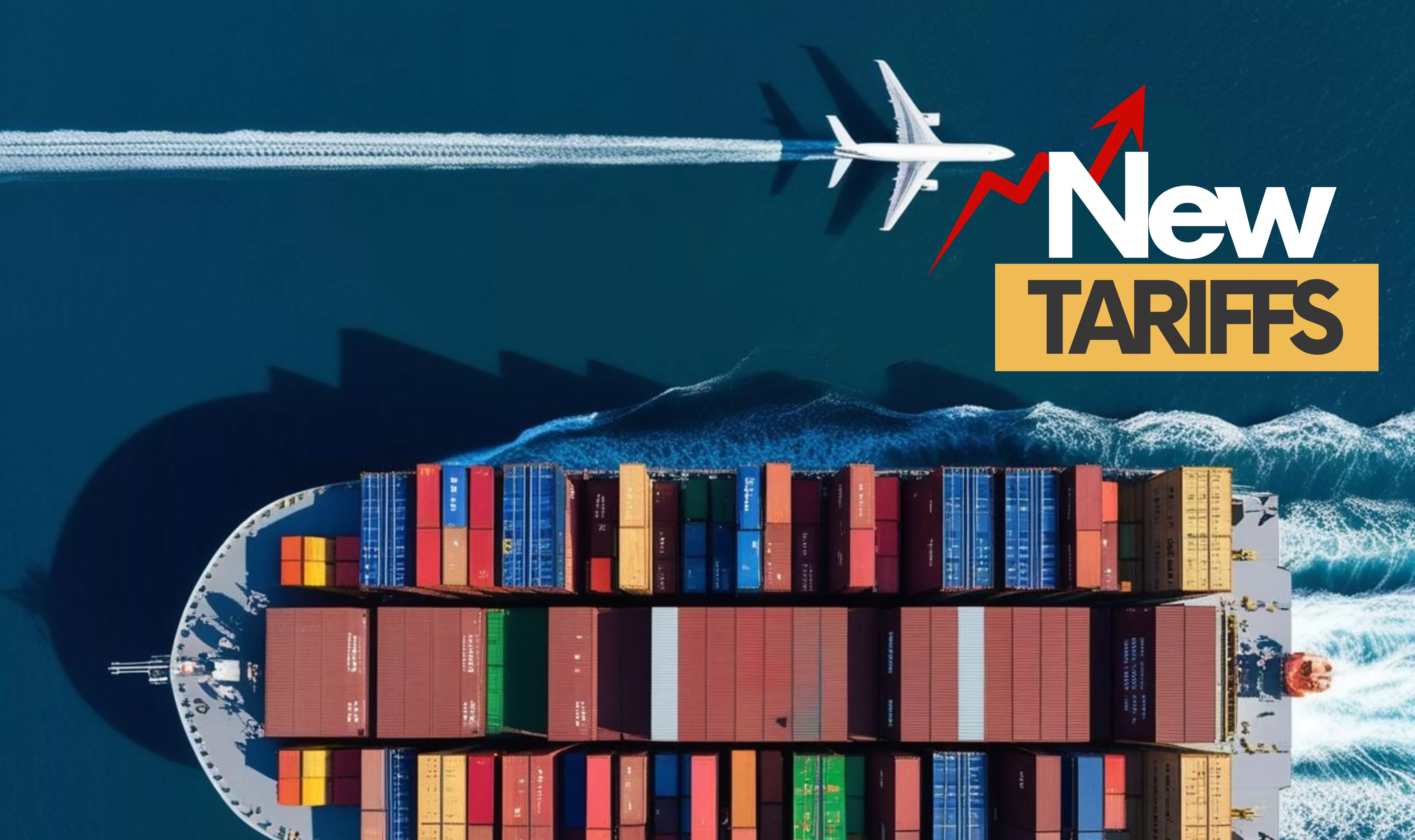Update 10/04/2025
Just after publishing this article, Trump announced a 125% tariff on Chinese goods, effective immediately, along with a 90-day pause and a 10% reciprocal tariff for cooperating countries.
Global trade is facing a dramatic realignment as the U.S. imposes sweeping new tariffs, most notably a steep 104% duty on Chinese imports, sending shockwaves through established supply networks. In a rare show of unity, China, Japan, and South Korea are collaborating to safeguard regional stability, highlighting the critical need for swift adaptation.
With Asian markets sliding by as much as 10% and U.S. tariff revenues poised to reach record highs, companies worldwide are being pushed to reevaluate their strategies and pivot in real time. This move comes as they react to new U.S. tariffs and shows changes in global trade. Businesses, especially those handling stock and clearance, need to adjust to these new policies and market shifts.
On April 9, 2025, the U.S. introduced new tariffs, including a 104% duty on Chinese imports. This caused big drops in global markets, especially in Asia. These impacts inventory management as companies must adjust to new costs and market changes.

For suppliers navigating the fallout of recent trade disruptions, surplus inventory has become a pressing concern. With capital locked in unsold goods, rising storage costs, and shrinking margins, the pressure is mounting. Yet, within this challenge lies a strategic opportunity. By collaborating with specialized inventory clearance partners such as Ozeol, suppliers can transform excess stock into recovered value, freeing up resources and preserving operational agility in a volatile market.
Why These Tariffs Matter to Suppliers
As trade tensions rise, particularly with the recent U.S. tariffs affecting China, Japan, and South Korea, suppliers are finding themselves in uncertain waters. These shifts in global trade policies can have real consequences, especially when it comes to managing inventory.
1. Overstock Risks Tariffs and other trade barriers can quickly lead to an excess of unsold stock. When goods are delayed, blocked, or made more expensive to move, they sit longer in warehouses, driving up storage costs and putting pressure on margins.
2. Market Shifts New policies often reshape demand patterns. What used to be a high-demand market might now be harder to reach or more expensive to serve. Suppliers need to be ready to adapt and redirect their products elsewhere—fast.
How Ozeol Can Help Suppliers Adapt
Ozeol specializes in purchasing surplus and overstock inventory from suppliers across the globe. With a strong presence in over 30 countries and a vast B2B network, Ozeol is the partner you need to stay agile in today’s trade environment.
Recover Value, Don’t let unsold stock turn into losses. Ozeol helps suppliers recover part of the original value of their products by offering a second chance at distribution.
Expand Market Reach, Ozeol opens doors to new markets that suppliers might not have access to on their own. We redirect your products to buyers where demand still exists, fast, efficiently, and globally.
To Promote Sustainability By preventing waste and reducing overproduction, Ozeol supports a circular economy. Together, we keep products in motion—not in landfills.
👉 Ready to turn your surplus into success? Become a supplier today and let Ozeol help you navigate these turbulent times!
Strategies for Suppliers :
to Thrive Amid Global Trade Shifts To stay competitive in this volatile environment, suppliers must adopt proactive strategies:
- Monitor Tariff Changes, stay up to date on policy shifts to make informed decisions ahead of time.
- Review Supply Chains, to diversify sourcing and consider suppliers in regions with fewer trade barriers.
- Leverage Free Trade Agreements (FTAs) Use FTAs to access more cost-effective and accessible markets.
- Adjust Pricing Re-evaluate your pricing models to stay competitive despite rising costs.
- Diversify Markets Explore and enter new regions with favorable trade policies to minimize exposure.
- Invest in Technology, to Use AI and automation to optimize inventory management and reduce waste.
- Collaborate with Industry Groups, Connect with associations to share insights and stay ahead of the curve.
- Plan for Risk Develop flexible plans that prepare your business for rapid trade changes.
By using these strategies, suppliers can reduce risks and find new opportunities in the changing global trade environment.
Conclusion The global trade landscape is evolving—but your business doesn’t have to face these challenges alone. Ozeol is good at managing excess stock and finding new markets. This helps you keep up with changes and find new opportunities.
Become a Supplier Today, Partner with Ozeol and transform your surplus into opportunity.
Learn More Discover how Ozeol’s smart, flexible solutions can help you navigate shifting market conditions with confidence.

